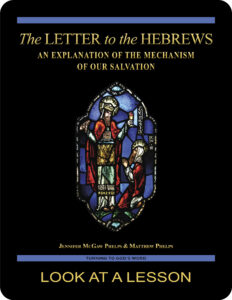apostle
 In the sixth chapter in the Gospel According to Mark (NABRE), Jesus sends the Twelve out two-by-two after giving them authority over demons and specific instructions about what to take and what not to take with them. The message they’re told to preach is one of repentance.
In the sixth chapter in the Gospel According to Mark (NABRE), Jesus sends the Twelve out two-by-two after giving them authority over demons and specific instructions about what to take and what not to take with them. The message they’re told to preach is one of repentance.
This sending out marks a significant change in Jesus’ ministry. Now not only is he preaching on his own behalf but others also are preaching his message of repentance. The Greek word used to describe the sending out of these followers comes from the same root as ἀπόστολος (apostolos), a messenger, ambassador, or envoy. The noun apostolos and the verb form apostello typically have strong naval associations, implying that such sending usually involved travel by sea or more abstractly suggesting travel over a long distance. By sending out the Twelve, Jesus has shifted from having disciples to having apostles, ones who are sent out. This shift lays the foundation for the early Church.
In the context of Christianity, what can we learn about the Apostles? The Twelve were commissioned and sent out to spread the message of Christianity. Over their lifetimes, they spread Christianity far and wide. The role of apostle, then, is as an ambassador or envoy on behalf of Jesus to carry his Gospel message to all the earth.
How are all Christians called to share in this mission?
related topics: inspiration; prophecy; prophet; word of God
you also may like our study of the Letter to the Hebrews (digital only)
 Many Christians struggle to understand one of the central mysteries of our faith: how Jesus can be both human and divine at the same time. The Letter to the Hebrews: An Explanation of the Mechanism of Our Salvation, an 18-lesson Catholic Bible study with an imprimatur, offers an in-depth look at the way in which Jesus’ dual nature allows for the salvation of humanity. The Letter to the Hebrews is designed to provide information that will encourage Christians to remain faithful. Click on the book’s cover to view a sample lesson.
Many Christians struggle to understand one of the central mysteries of our faith: how Jesus can be both human and divine at the same time. The Letter to the Hebrews: An Explanation of the Mechanism of Our Salvation, an 18-lesson Catholic Bible study with an imprimatur, offers an in-depth look at the way in which Jesus’ dual nature allows for the salvation of humanity. The Letter to the Hebrews is designed to provide information that will encourage Christians to remain faithful. Click on the book’s cover to view a sample lesson.
 Click on the picture of the statue of Moses with horns (above) to learn more about Lost in Translation. A new entry is archived each Monday. Contact us to receive Lost in Translation by email every week. You may use any of the contact links on our website to ask Matthew a question.
Click on the picture of the statue of Moses with horns (above) to learn more about Lost in Translation. A new entry is archived each Monday. Contact us to receive Lost in Translation by email every week. You may use any of the contact links on our website to ask Matthew a question.
